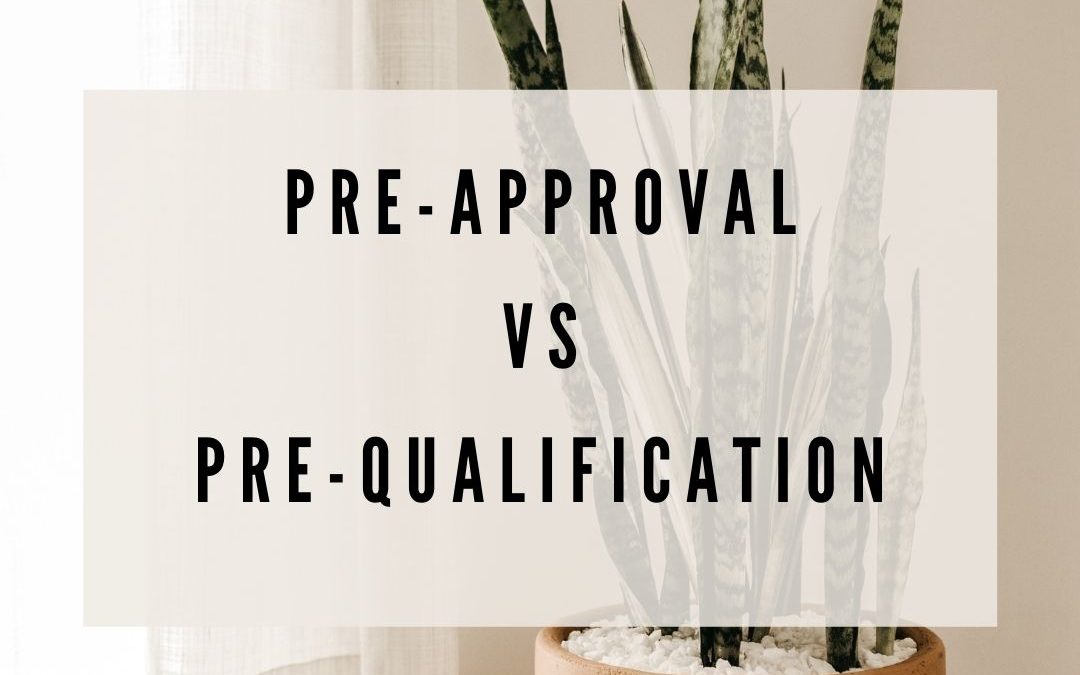What Does it Mean to Be Pre-Qualified?
The mortgage pre-qualification process can be described as an estimated version of a mortgage pre-approval. To get pre-qualified, potential buyers would have to provide their general financials ( income, assets and debt) to the prospective lender. It’s important to note that the pre-qualification process does not require a credit check. The lender would then assess the information given and provide the borrower with an estimated projection of how much of a mortgage they will be eligible to receive. The main benefit of getting pre-qualified is to give you a general idea about what you can expect to be eligible for. The process can be completed quite casually, meaning a phone call or online assessment is often adequate to obtain a pre-qualification.
What Does it Mean to be Pre-Approved?
Having a mortgage pre-approval is the next step following a mortgage pre-qualification, but is only done when the prospective homeowner is more serious about buying. A mortgage pre-approval provides a borrower with a more precise amount of money that they can expect to be approved for. The process is more detailed, taking more time to complete, and requiring potential borrowers to complete a full mortgage application and to provide a variety of documents that include your:
- Assets
- Debt
- Income
- Identification
- Proof of employment
- Proof of capital to pay closing costs
- Expenses and financial obligations, including:
- Child or spousal support
- Student loans
- Lines of Credit
- Car loans
- Credit card balances
Lenders may require a few documents to verify your employment, including:
- Recent pay stubs to verify your wage or salary
- Employment letter from your employer, documenting the length of your employment and salary
- Notice of Assessments from the CRA if you own your own business
You’re allowed to get more than one pre-approval by exploring different options from different lenders. Although this will mean each lender will conduct a credit check, it’s important to note that these are soft credit checks that will not affect your credit score.
Pre-Approval, Interest Rates and Rate Holds
Having a pre-approval can give you a better idea about what the interest will look like on your mortgage. You might be able to lock in an interest rate, also known as a rate hold, through your mortgage pre-approval process, though this relates to fixed rates, not variable rates. The benefit of locking down a rate is if your lender’s fixed-rate goes up between your pre-approval and approval, you are safely locked into your pre-approval rate.
Rate holds are usually valid for 60-day, 90-day, or 120-day periods, depending on your lender and your application. It’s important to note, however, that a rate hold doesn’t guarantee your approval of the mortgage. You can still be refused based on many types of criteria they have that they feel you weren’t able to meet, including changes in your financial situation.
How Long is a Pre-Approval Valid For?
Although pre-approvals vary by lender, most buyers will be approved for between 90 and 120 days. Sometimes, lenders will offer extensions on your pre-approval period, but you will need to resubmit your financial documents again to do this. Nonetheless, the pre-approval period gives you a minimum of 3-4 months to seek out your new home.
Should You Get a Pre-Approval or a Pre-Qualification?
It’s helpful and necessary to obtain both a pre-qualification and pre-approval, during the different stages of the mortgage process.
When Should a Consumer Get a Pre-Qualification?
Prospective home buyers should consider obtaining a pre-qualification at the earliest point of time when considering purchasing a home. This allows the homebuyer to consider their budget while obtaining insight into a lender’s options, as well as their own needs and goals.
When Should a Consumer Get a Pre-Approval?
Prospective home buyers should consider obtaining a pre-approval when they are more involved in the home buying process, ideally within three months of the expected purchase date of their new house. This is because pre-approvals last up to 120 days in most cases. A pre-approval will also strengthen a potential homebuyer’s offer in a bidding war if the sale is conditional on financing.
